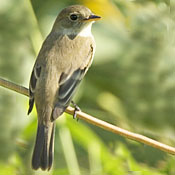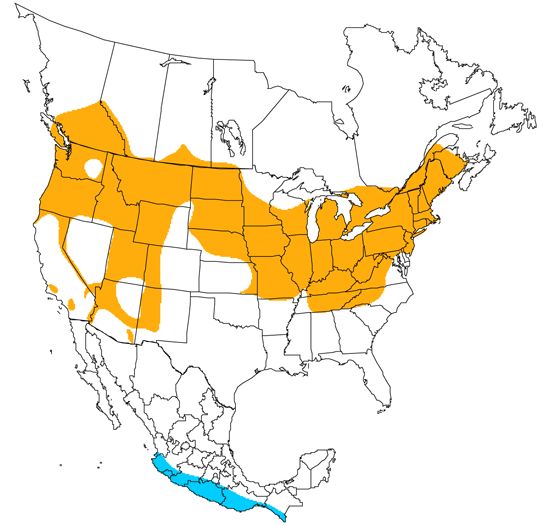Willow Flycatcher
Empidonax traillii

Perching

Length: 6 in. (15 cm )
Obscure and difficult to see or identify in thick willows of swamps, lake edges and riparian areas in the west, the distinctive voice, sung by both male and female, makes its presence obvious. The nest is placed near water on a small twig fork and made of grass, hair, plant down and feathers. Its diet is almost exclusively insects caught in the air, but in the fall a few seed are also eaten. In the southwest US, this species is considered endangered as its riparian habitats are quickly disappearing.
The four-digit banding code is WIFL.
Bibliographic details:
- Article: Willow Flycatcher
- Author(s): Dr. Biology
- Publisher: Arizona State University School of Life Sciences Ask A Biologist
- Site name: ASU - Ask A Biologist
- Date published:
- Date accessed:
- Link: https://askabiologist.asu.edu/activities/bird/willow-flycatcher
APA Style
Dr. Biology. (). Willow Flycatcher. ASU - Ask A Biologist. Retrieved from https://askabiologist.asu.edu/activities/bird/willow-flycatcher
Chicago Manual of Style
Dr. Biology. "Willow Flycatcher". ASU - Ask A Biologist. . https://askabiologist.asu.edu/activities/bird/willow-flycatcher
Dr. Biology. "Willow Flycatcher". ASU - Ask A Biologist. . ASU - Ask A Biologist, Web. https://askabiologist.asu.edu/activities/bird/willow-flycatcher
MLA 2017 Style
Be Part of
Ask A Biologist
By volunteering, or simply sending us feedback on the site. Scientists, teachers, writers, illustrators, and translators are all important to the program. If you are interested in helping with the website we have a Volunteers page to get the process started.



